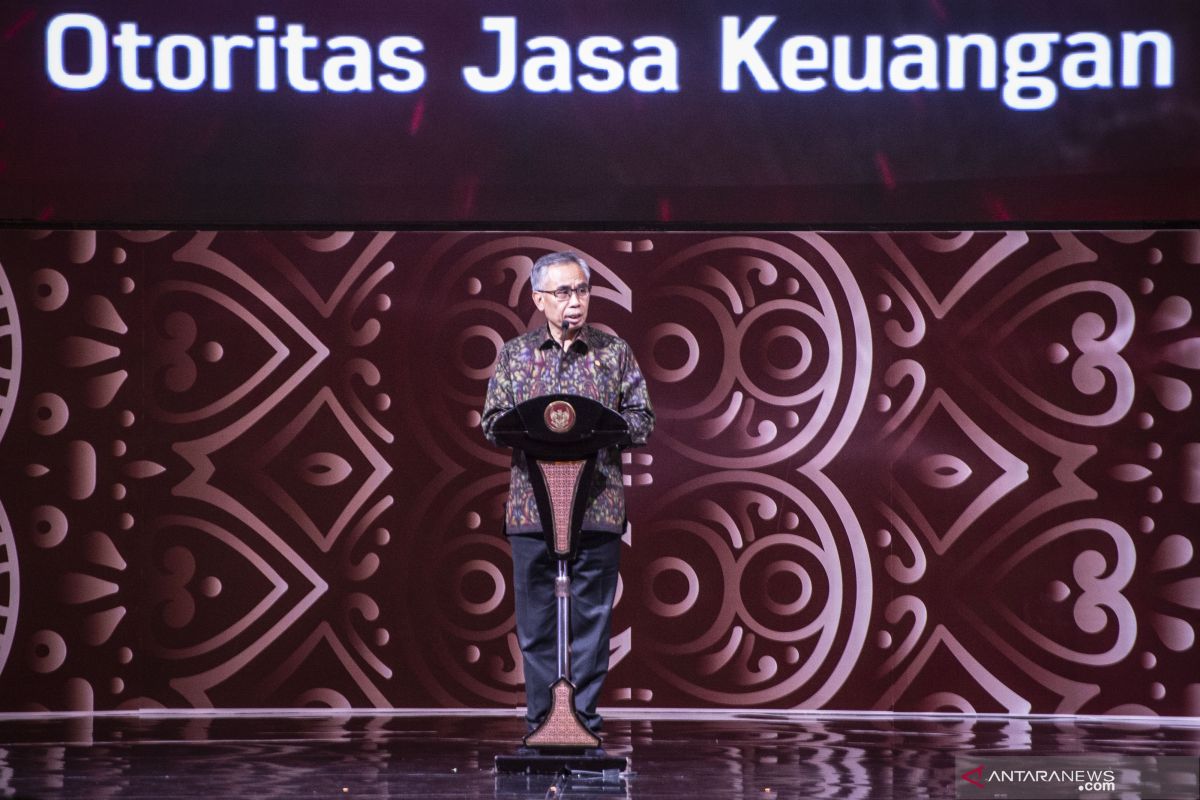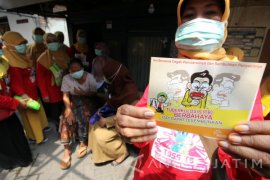The five steps to improve the economies of scale of the country's financial industry is raising the nominal of minimum capital and encouraging the acceleration of consolidation with incentive and disincentive policies, including exit policies.Jakarta (ANTARA) - The Financial Services Authority (OJK) has accelerated the national banking target to enter the top five banks in the ASEAN region in the 2020-2024 period.
"Our bank has now entered the top 10 though not yet in the top five," Chairman of the OJK Board of Commissioners Wimboh Santoso stated at the 2020 annual meeting of the financial services industry in Jakarta, Thursday.
Santoso remarked that the OJK will consolidate and capitalize as a priority for both the banking and non-banking sectors to accelerate national banking in the Southeast Asian region.
Raising the scale of the financial industry is one of OJK's five strategic policies in 2020.
The five steps to improve the economies of scale of the country's financial industry is raising the nominal of minimum capital and encouraging the acceleration of consolidation with incentive and disincentive policies, including exit policies.
Furthermore, accelerating the transformation of the nonbank financial industry and tightening business licensing activities in securities companies based on their level of capital.
Related news: BI, OJK, LPS implement integrated bank sector reporting
Related news: OJK's task force identifies 125 illicit fintechs, closes 182 entities
In addition to increasing the economies of scale, four other strategic policies comprise streamlining regulations and reducing oversight gaps between the financial services sectors, digitizing products and services, expediting the provision of public financial access, and developing the economic and Islamic financial ecosystem.
In the meantime, speaking in connection with banking performance, Wimboh expounded that national banking had experienced growth in 2019, though the figure is still lower than that in 2018.
Bank credits entering the BUKU IV category grew 7.8 percent, or lower compared to 12.3 percent in 2018.
In the meantime, bank loans entering the BUKU III grew 2.4 percent, while last year it was recorded at 12.3 percent, whereas bank credits of the BUKU II category grew 8.4 percent lower compared to last year that reached 8.8 percent and bank loans of the BUKU I category grew 6.4 percent.
Based on ownership, state-owned banks grew 8.5 percent as compared to 14 percent last year and also national private banks grew 4.3 percent, lower than last year's 9.4 percent.
Meanwhile, non-performing loans, or NPLs, in 2019 had reached 2.65 percent higher as compared to 2.4 percent in 2018. Related news: Jokowi stresses on raising financial literacy to boost micro economy
Related news: Sharia economy is 80 percent contributor of GDP: Bank Indonesia
EDITED BY INE
Translator: Dewa Ketut, Azis Kurmala
Editor: Fardah Assegaf
Copyright © ANTARA 2020











